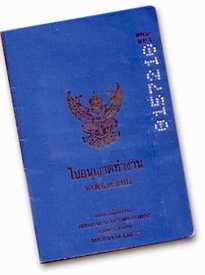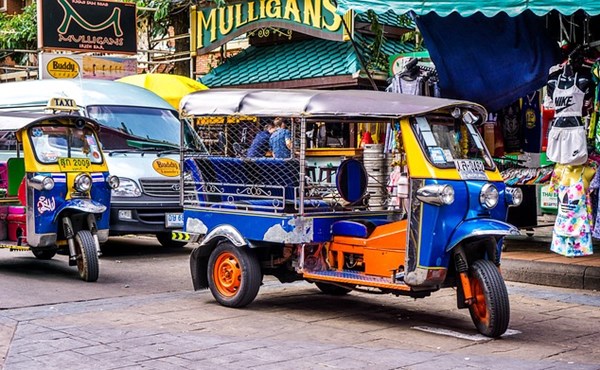
Up until a couple of years ago, it used to be relatively easy to work in Thailand without a work permit. Not technically legal, most of the time the government turned a blind eye if you worked without a work permit, but not anymore. In the last two years, Thai authorities have not only started to mandate work permits but have actively gone after people that don’t have them, either arresting them or deporting them from the country or both.
If you are in Thailand working or planning on coming to get a job, getting a work permit actually isn’t that difficult. Just follow these directions and you’ll find yourself working legally in no time.
Non-Immigrant Visa – First of all, you need to have a non-immigrant visa stamped into your passport in order to apply for a work permit in Thailand. There are several ways of getting this visa before you come to Thailand, but these are the most common:
1) You have been offered a job and have a letter from the company or school that’s giving it to you. Send the letter to a Thai consulate or embassy outside Thailand along with an application form and the fee for a non-immigrant visa. This will allow you to stay in Thailand for three months, which will give you plenty of time to apply for a work permit that will then allow you to stay for a year.
2) If you are taking a TEFL certification course in Thailand, the school can apply for a non-immigrant visa for you. This can then be used to get a work permit once you get a job in Thailand.
3) You are married to a Thai or retired. Then you can apply for a non-immigrant visa either on grounds of marriage or retirement. Just make sure when you apply, you get a multiple entry visa, as this is valid for a year as long as you leave the country and return every three months (thus the ‘multiple entry’ portion of it). This also gives you up to a year to get a job if you can’t find what you’re looking for in the first few months.

What Do You Need To Get a Work Permit in Thailand? – So, now you’ve got a job and you want a work permit so you’re working legally. How do you get one?
Firstly, the company or school you will be working for will likely arrange for somebody to take you to immigration and then to the labor department to get your work permit paperwork going. If they don’t, these are the things you need to have before you can apply for a work permit in Thailand:
1) The non-immigrant visa stamped in your passport
2) Two photocopies of the photo page of your passport, plus two photocopies of the page in your passport showing your non-immigrant visa, plus two photocopies of the entry/exit card (the white card that’s stapled into your passport when you arrive in Thailand).
3) Your original university degree and university transcripts plus two copies of each.
4) You will also need a medical certificate showing you are in good health. You can get these at most doctor’s offices or hospitals and literally cost around 50 baht ($1.40) and take fifteen minutes to get one.
5) Two colored photographs, that you can get at any photographer or photography booth in Thailand. These must be 5 centimeters by 4 centimeters. Also try to look professional in them (wear professional dress for the photographs), look full onto the camera and don’t smile.
6) You will also need a slew of documents from your future employer regarding their company license and tax information. Your employer should know exactly what these documents are and, if they don’t, go to immigration and ask one of the staff there to call them to tell that what they need to provide to you for your work permit application.
7) The fee for the work permit. As this changes regularly, all I can say is it is currently approximately five thousand baht (around $156) for a year’s work permit.
What To Do Once Work Permit Documents Are Submitted? – Technically, once the paperwork is submitted, according to the Immigration Department, you can begin to work. The application takes two to four weeks to be processed and they understand the company or school can’t always keep the job open for you if you can’t start work immediately.
Make sure, if your non-immigrant visa is due to expire (ie: your three months are up) you must leave the country and come back in again, even though your work permit is in process. If you don’t, and you let the visa expire, your work permit application will also expire and you’ll have to start the whole process again with a new visa.
Also remember, a work permit in Thailand has to be renewed every year and is only valid for the company or school you applied with and that particular location. So, for instance, you cannot legally work for another company in the evenings or on weekends with that work permit and you cannot work at a different office or school location than the work permit specifies. (In both cases, many foreigners do, you just should know it’s technically not legal).



